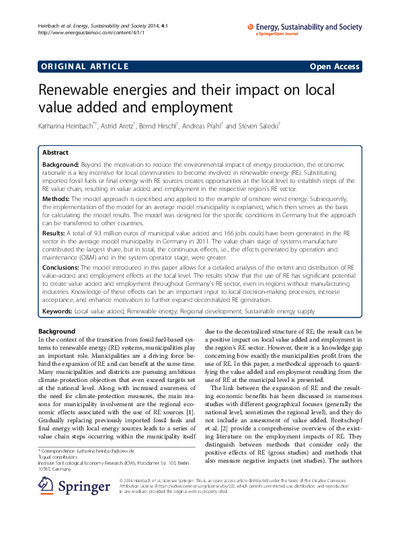Renewable Energies and Their Impact on Local Value Added and Employment
Beyond the motivation to reduce the environmental impact of energy production, the economic rationale is a key incentive for local communities to become involved in renewable energy (RE). Substituting imported fossil fuels or final energy with RE sources creates opportunities at the local level to establish steps of the RE value chain, resulting in value added and employment in the respective region's RE sector. In this paper, the model developed by Institute for Ecological Economy Research (IÖW) to quantify value-added and gross employment effects generated by RE on a local scale is described and applied to the example of onshore wind energy. Furthermore, the implementation of the model for an average model municipality is explained, which then serves as the basis for calculating the model results. The results show that the use of RE has significant potential to create value added and employment throughout Germany's RE sector, even in regions without manufacturing industries. Knowledge of these effects can be an important input to local decision-making processes, increase acceptance, and enhance motivation to further expand decentralized RE generation.



